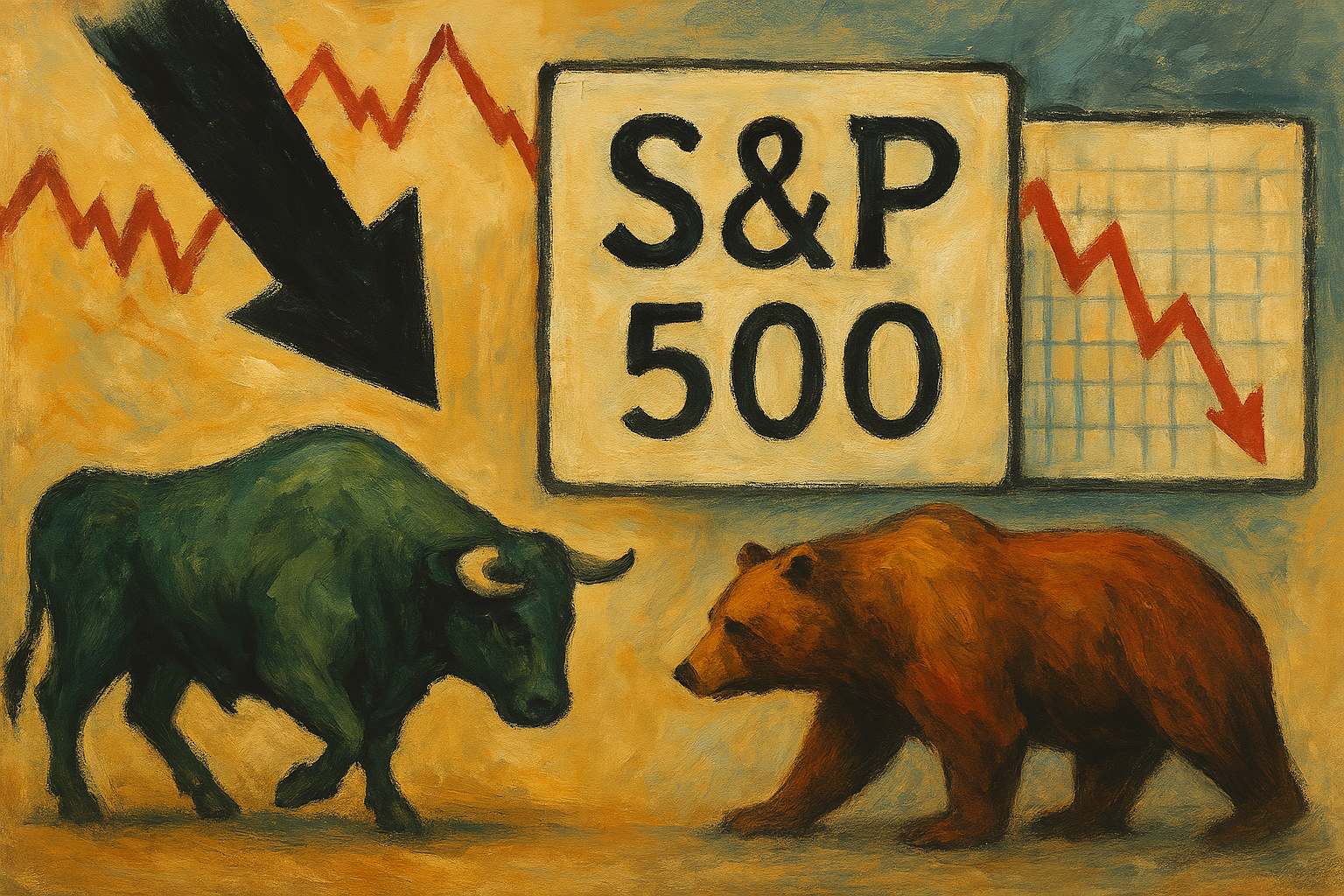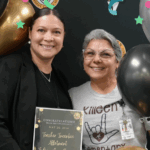“Mom, what’s a stock market crash?”
That’s the kind of question that can land like a brick at the dinner table, especially when you’re just trying to get through homework and bedtime. But with headlines blaring about another potential market tumble, it’s a question many families and classrooms are suddenly staring down.
I still remember the first time a student asked me something like that wide-eyed, during morning homeroom, just trying to make sense of a conversation they overheard at home. It caught me off guard, but it also reminded me: kids are always listening, always curious.
And here’s the truth: we don’t need to be Wall Street analysts to help kids make sense of the world. We just need a little clarity, a bit of calm, and a good story or two.
What Even Is the Stock Market? (And Why Should My Kid Care?)
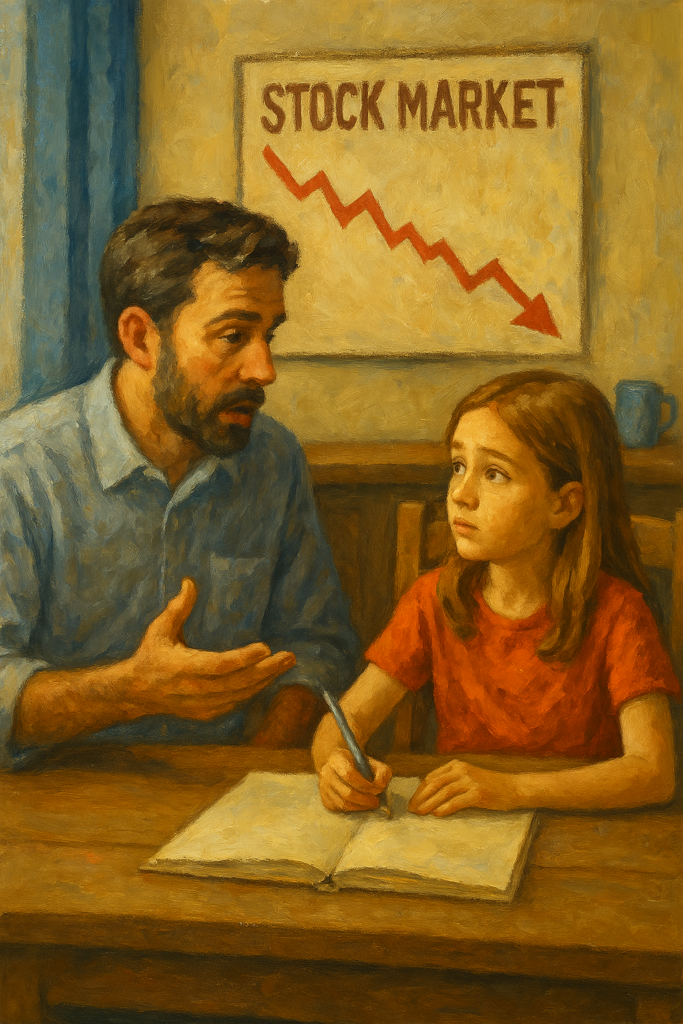
Think of the stock market as a giant marketplace—not for apples and oranges, but for pieces of companies. When someone buys a stock, they’re buying a small slice of a business. The value of that slice goes up or down depending on how people feel about the company and the economy overall.
And while it might feel like something far away from the day-to-day classroom or kitchen, the stock market affects things like:
- Retirement accounts and college savings
- School funding in some districts
- Family finances, job stability, and community resources
So yes, even if your 10-year-old isn’t trading shares in math class, the ripple effects can still touch their world.
The S&P 500: America’s Business Report Card
If the stock market is the whole buffet, the S&P 500 is like the highlight reel. It tracks the performance of 500 of the biggest, most influential companies in the U.S., think Apple, Amazon, and Coca-Cola. When people say, “The market is up today,” they’re often talking about this index.
Why does that matter? Because it gives us a snapshot of how the economy is doing overall. If the S&P 500 is struggling, it usually means people and businesses are nervous, and that nervousness can spread fast.
What Does a Stock Market Crash Mean?
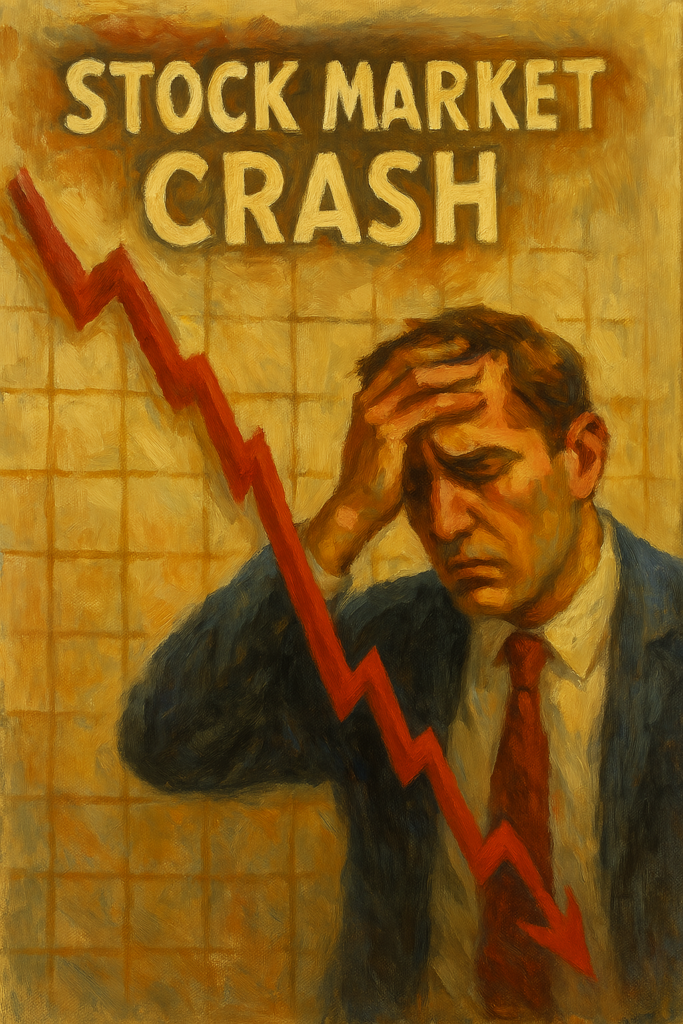
A crash is when the market like the S&P 500 suddenly drops a lot in a very short time. It’s like the rollercoaster ride you didn’t sign up for: fast, scary, and often confusing.
Crashes can be caused by fear, wars, interest rate hikes, or unexpected events that shake people’s confidence in the economy. In classrooms and homes, they can trigger real consequences:
- Families put off big purchases or vacations
- Teachers may see an uptick in student stress or absenteeism
- District budgets might tighten if local tax revenue takes a hit
Flashback: What Happened in the 1987 Stock Market Crash?
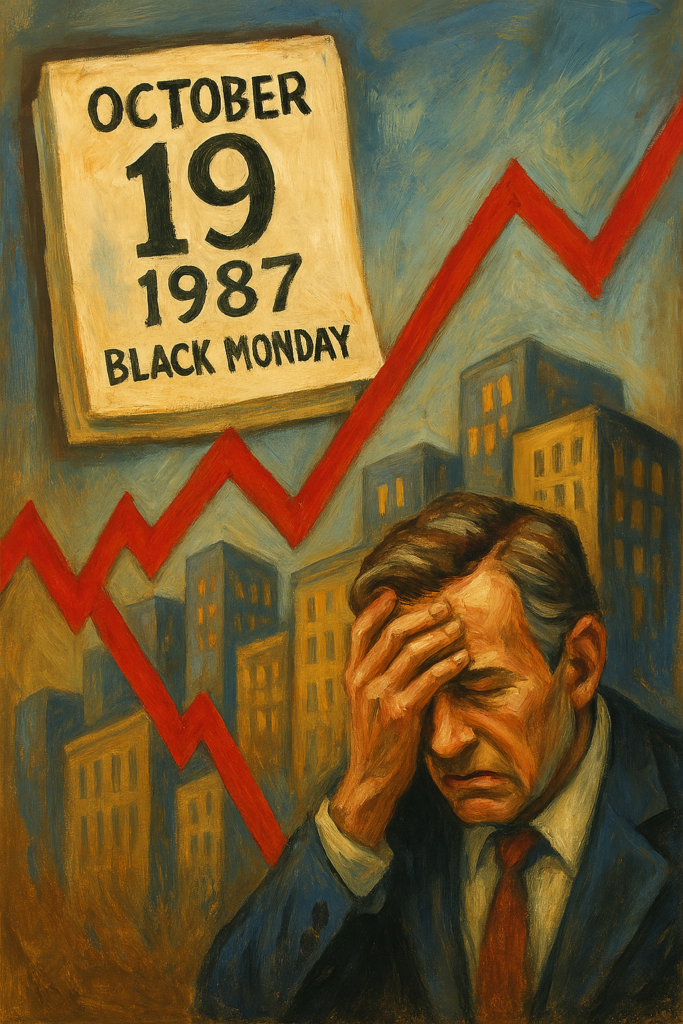
Let’s rewind to October 19, 1987—“Black Monday.”
In one day, the market lost more than 20% of its value. The biggest one-day drop in U.S. history. What triggered it? A mix of computerized trading, investor panic, and a snowball effect that no one could stop once it started.
Sound familiar?
The difference? Back then, we didn’t have the internet or 24/7 financial news. People found out through newspapers the next day. But the emotional wave? Just as real.
And here’s the kicker: The market eventually recovered. It always does, though not without lessons, scars, and changes.
What’s Happening Now in 2025?
Fast-forward to today. The stock market is once again on shaky ground. Inflation is still a concern. Interest rates are high. Big tech stocks are wobbling. And just like in 1987, uncertainty is causing people to panic and sell, triggering fast declines.
For families, this might mean feeling financially pinched. For teachers, it could show up in students who are suddenly more distracted, more emotional, or even more mobile if housing situations change.
That’s why understanding this moment and explaining it simply, matters.
How to Talk to Kids About Market Crashes Without Freaking Them Out
Here’s the secret: Kids don’t need every detail. They need security, honesty, and stories with hope.
Try this:
- “The stock market is like a giant scoreboard for businesses. Sometimes it goes up, sometimes it goes down but it always comes back up again.”
- “In 1987, people were scared, too. But things got better. Grown-ups work hard to make sure the system stays safe.”
- “Even when money is tight, love, learning, and family matter most. We’re okay.”
And if you’re a teacher? It’s okay to weave in basic financial literacy when appropriate. It doesn’t have to be a formal lesson. A casual chat can go a long way.
Final thoughts
Look, I’ve stood in front of classrooms during recessions, budget cuts, and tough economic times. And what I’ve learned is this: Kids are watching us. They’re picking up on our tone, our tension, and our hope.
So let’s give them a story that’s honest but steady. Let’s remind them and ourselves that markets may crash, but communities hold steady. Families adapt. Classrooms carry on.
And history shows us: the crash isn’t the end of the story, it’s just a chapter.
